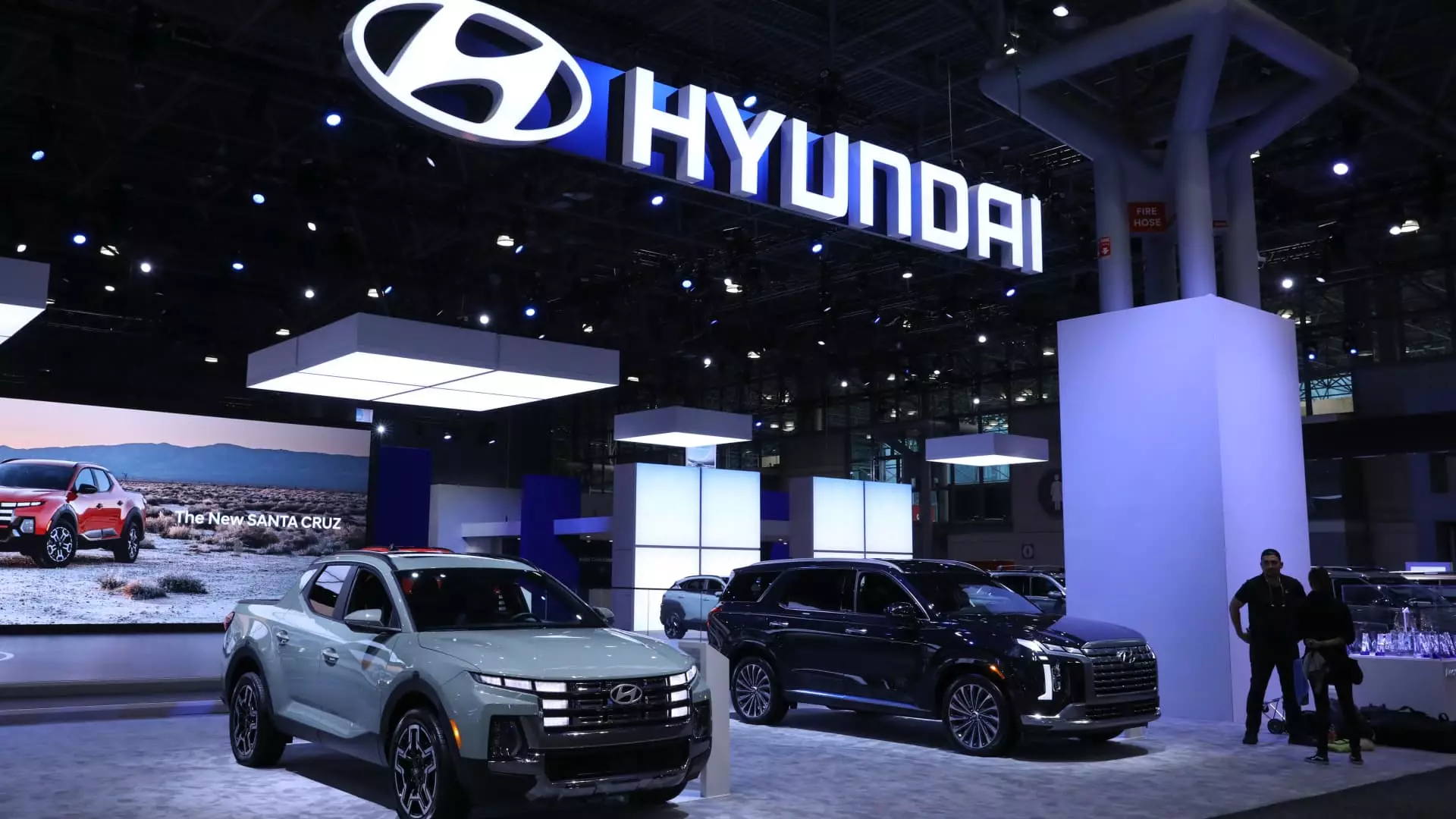In a striking announcement poised to shift the landscape of U.S. manufacturing, Hyundai is set to invest $20 billion into onshoring operations, including a $5 billion steel plant in Louisiana. This ambitious venture is designed to secure jobs for around 1,500 Americans, but it raises crucial questions about the sustainability of such initiatives in an increasingly complex economic climate. While creating jobs is undoubtedly positive, we must critically evaluate what this substantial investment means for both Hyundai and America’s manufacturing viability.
The Tariff Tango: A Game of Dodgeball
Hyundai’s strategy seems to reflect a vital need to sidestep not just the impending tariffs but also to navigate an intricate game of international trade. Amid rising tensions and threats of a trade war, companies are scrambling to adapt, often leading to hurried decisions. It’s commendable that Hyundai is enhancing localization to counteract these external pressures, as indicated by CEO José Muñoz. However, we should question whether this investment is genuinely driven by long-term strategic planning or merely a reaction to avoid immediate financial repercussions.
Moreover, this strategy draws attention to a dangerous precedent: are we inadvertently rewarding corporations for pandering to governmental whims rather than nurturing a genuinely competitive and innovative environment? The emphasis on onshoring—while attractive on the surface—can risk creating a landscape where companies look more to government favor than consumer needs.
The Electric Vehicle Race
Hyundai, already a formidable competitor in the electric vehicle sector, now finds itself in direct competition with industry giants like Tesla. The manufacturing of “next-generation” steel aligns well with their ambitions, but one must ponder the long-term implications. Will this push to produce electric vehicles in the U.S. lead to sustainable economic growth, or simply further entrench the current status quo of reliance on foreign materials and labor?
The decision to open a third automotive plant in Georgia adds to the narrative of a thriving American manufacturing renaissance, but the looming question remains—will these endeavors lead to meaningful advancements for the workforce, or will they ultimately serve as sophisticated PR exercises to satisfy stakeholders and avoid political fallout?
Trade Deficits and the Tariff Dilemma
While welcoming Hyundai’s investment, we must also confront the elephant in the room: the trade deficit with South Korea, which has drawn ire from officials in Washington. Trump’s pointed criticism regarding South Korea’s higher tariffs stands in stark contrast to the federal government’s push for foreign investments. If the underlying tariffs are disproportionate, how can we expect equitable trade relations to stably form?
Hyundai’s endeavors may reflect a positive shift towards securing American jobs but risk muddying the waters of genuine free trade. Are we merely shifting burdens instead of enriching economic landscapes?
As we assess the implications of Hyundai’s grand investment, it becomes vital to contemplate whether the focus will remain on actual job creation and innovation, or if we are merely trading one set of economic challenges for another in a volatile global market. It’s a double-edged sword that requires careful analysis and, admittedly, a bit of skepticism.

